
Cuisine
Malian cuisine
Malian cuisine is characterized by its use of fresh ingredients and simple cooking techniques. The cuisine is heavily influenced by the country's history of colonization and trade, with French and Arabic influences evident in many dishes. The cuisine is known for its use of grains, vegetables, and spices, and is often served with a side of meat or fish. The cuisine is also known for its use of peanuts and peanut butter, which are used in many dishes.
Typical ingredients
Grains (rice, millet, sorghum), Vegetables (okra, tomatoes, onions, garlic), Peanuts, Peanut butter, Meat (beef, goat, chicken), Fish, Ginger, Chili peppers
Presentation and garnishing
Malian cuisine is often served on a large platter with the main dish in the center and the sides arranged around it. The cuisine is often garnished with fresh herbs and spices, and is served with a side of meat or fish. The cuisine is also often accompanied by a glass of palm wine or a cold beer.
The cuisine is often served with a side of tô, a starchy side dish made from millet or sorghum. The cuisine is also known for its use of baobab fruit, which is believed to have medicinal properties.
More cuisines from this region...
Nigerian cuisine, Ghanaian cuisine, Ivorian cuisine, Senegalese cuisine, Benin cuisine, Burkinabé cuisine, Guinean cuisine, Liberian cuisine, Sierra Leone cuisine, Togolese cuisine
History
Malian cuisine has a long history dating back to the pre-colonial era. The cuisine has been influenced by the French, who colonized the region in the 19th century, as well as by the Arabic cultures that were brought to the region through trade. The cuisine is an important part of the country's cultural heritage and is often served at festivals and celebrations.
Cultural significance
Malian cuisine is an important part of the country's cultural heritage and is often served at festivals and celebrations. The cuisine is also an important part of daily life, with many families gathering around the table to share a meal. The cuisine is also known for its use of spices and herbs, which are believed to have medicinal properties.
Health benefits and considerations
Malian cuisine is generally healthy, with a focus on fresh ingredients and grains. However, the cuisine is also high in fat and calories due to its use of peanuts and peanut butter. People with peanut allergies should be cautious when consuming this cuisine.
Malian cuisine dishes

Kansiye
Peanut stew
Kansiye is a traditional dish from Mali. It is a spicy stew made with lamb, vegetables, and a variety of spices.

Dounguouri soko
Peanut butter stew
Dounguouri soko is a traditional dish from Burkina Faso, West Africa. It is a hearty and flavorful stew made with beans, vegetables, and spices.

Konkoé
Peanut butter and fish stew
Konkoé is a traditional dish from the Ivory Coast, made with cassava and served with a spicy sauce.
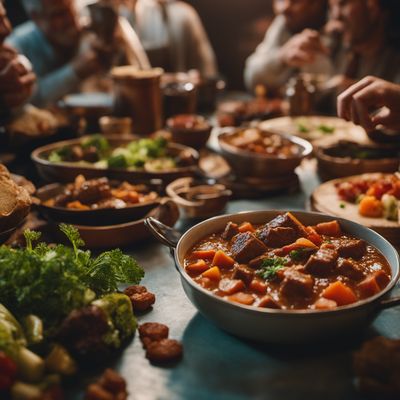
Bonava
Meat and vegetable stew
Bonava is a traditional dish from the Caribbean island of Trinidad and Tobago. This flavorful stew is made with chicken, vegetables, and a variety of spices, and is sure to...
Malian cuisine recipes Browse all »

Malian-Inspired Bro' Brusà
Savory Peanut Stew with Chicken and Vegetables

Malian Citrus Salad
Zesty Delight: Malian Citrus Salad with a Twist

Malian-style Morokyu
Spicy Peanut Cucumber Salad: A Malian Twist on Morokyu

Malian-style Fish Stew
Savory Fish Delight: Malian-style Masor Tenga
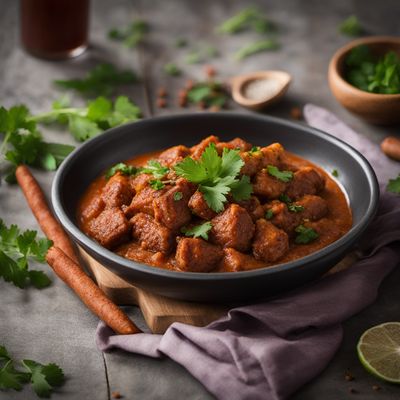
Malian-inspired Spiced Chicken Sausage
Savory West African Chicken Sausage with a Spicy Twist
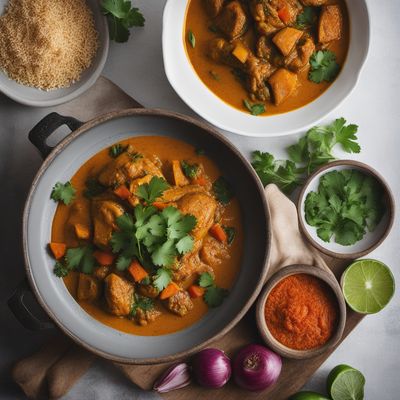
Malian-style Chicken Curry
Savory Malian Chicken Curry: A Fusion of Flavors

Malian-inspired Spicy Shrimp Skewers
Sizzling Shrimp Delight: A Taste of Mali
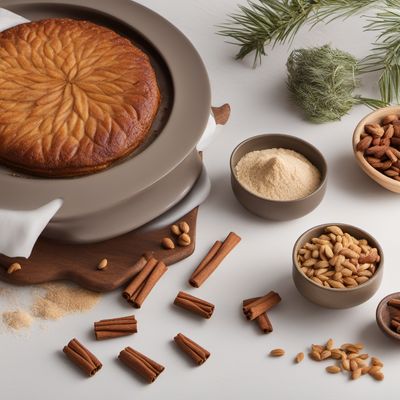
Malian Galette des Rois
Regal Malian Delight: Galette des Rois with a West African Twist
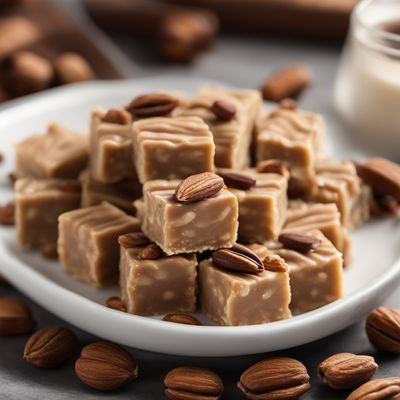
Malian Hazelnut Delight
Nocciola Maliana: A Nutty Delight from Mali
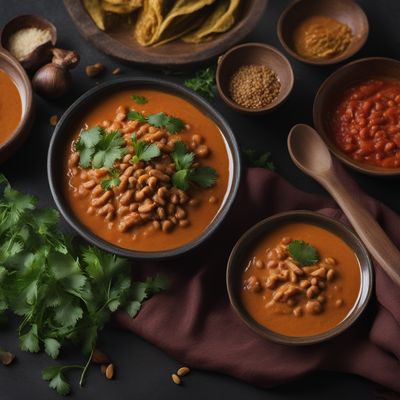
Dounguouri Soko with Peanut Sauce
Savory Millet Balls in Creamy Peanut Sauce
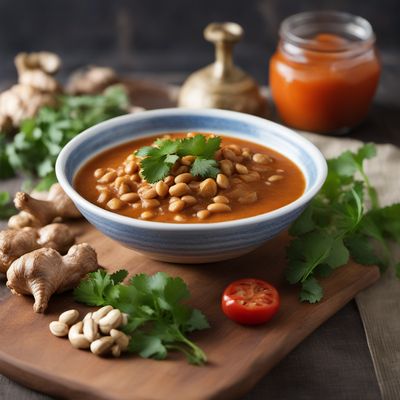
Kansiye with Peanut Sauce
Savory Delight: Kansiye with Creamy Peanut Sauce
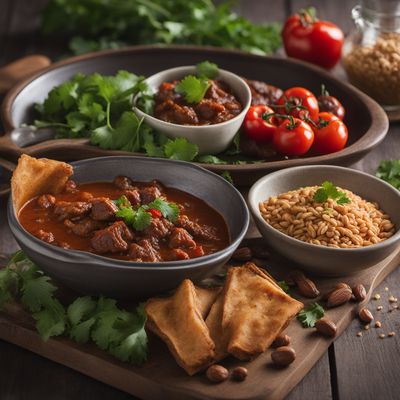
Malian Gulyás - Spicy Beef Stew with a Malian Twist
Savory and Spicy: Malian Gulyás - A Fusion of Hungarian and Malian Flavors